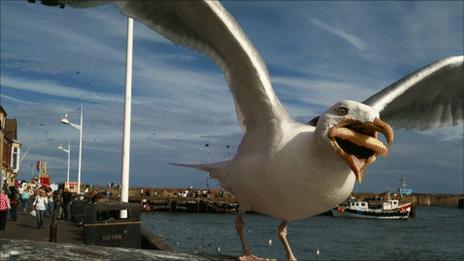Seagulls, scourge of the seaside?
- Published
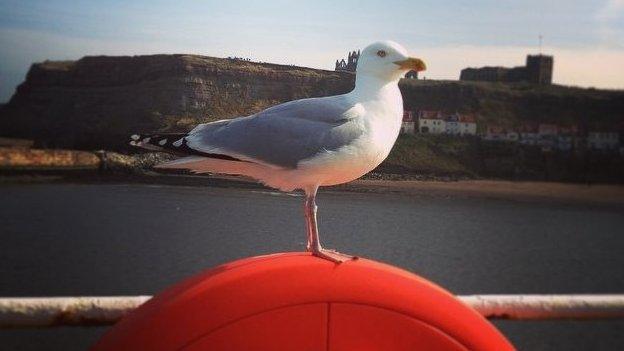
There are 140,000 breeding herring gull pairs in the UK according to the RSPB
The cry of the herring gull is a staple of the seaside soundtrack, their distinctive white chests and grey wings part of the scenery.
Opinions of the gulls range from them being brutish birds to a beautiful species needing our protection.
There have been numerous run-ins with people - and their pets - in the past, often when the gulls feel threatened, are protecting their young or scavenging for food.

Roo is the latest dog to be attacked and killed by gulls
The latest victim is Yorkshire terrier Roo, attacked by gulls in a garden in Newquay.
His owner, Emily Vincent, said it resembled a murder scene.
But Roo is only the latest canine to be killed by gulls while a tortoise called Stig has also been fatally attacked in Liskeard.
Pasty snatcher
In May this year the Exeter Express and Echo reported, external the case of Bella, a Chihuahua puppy pecked to death in her owner's back garden.
Bella's owner Nikki Wayne told the paper the birds, which were regularly perched on her roof, had made previous attempts to get to the dog, with her vet warning her to always accompany Bella outside.
And earlier this month tourist Natalie Jones captured the moment a gull tried to steal a pasty from her hand while she was holidaying in St Ives.
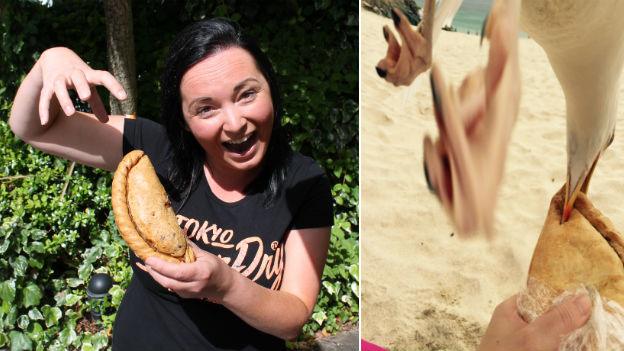
Natalie Jones showed how the seagull attacked her pasty on Porthgwidden beach
Noise from nesting gulls caused a problem at Furness General Hospital, with patients complaining of being kept awake.
And businessman Archie Workman planned to paint the roof of his office in Ulverston red, to deter the birds from landing there after repeated problems with droppings and gulls ripping open bin bags.
In June, BBC Radio Cymru reporter Anna-Marie Robinson was interviewing a man on a park bench about gulls in Caernarfon, Gwynedd when one stole his sandwich.
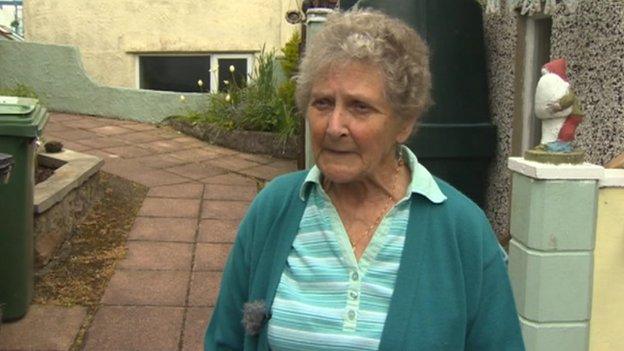
Margaret Parry said she was knocked over after being attacked by a seagull
She was following up on the case of Margaret Parry from Moelfre on Anglesey who was attacked by a seagull which felt its chick had been threatened.
Ms Parry said she was left with a deep cut on her face that needed to be glued at hospital.
She also needed a tetanus injection and suffered headaches for three days.
Cathie Kelly launched a lawsuit in March 2014 after she stumbled on steps as she tried to escape a "terrifying" dive-bombing bird in Greenock.
Ms Kelly said the gull was screaming as it flew at her face.

Seagulls are a common sight in Liverpool
And gulls have also been a problem in Liverpool with pianist Paul Lewis being forced to pull out of a concert after a swooping seagull caused him to injure his hand.
In Bristol a group of gulls delayed the opening of a restaurant, external by attacking the builders.
One victim in Folkestone likened an attack to something out of Alfred Hitchcock's film The Birds, external while postal deliveries to a road in Cornwall were suspended after a worker was attacked.
Royal Mail has apologised to residents who have been affected
Keith Lee called for action after being attacked three times by gulls while walking in Hull and residents of the Roundway area of Devizes in Wiltshire set up a petition due to dive-bombing problems.
Grahame Madge, a spokesman for the RSPB, said he has full sympathy for those affected by gulls but such incidents are rare.
The birds need to be carefully treated, he said, as they are on a "list of concern".
More are nesting in urban areas, but the number of herring gulls in the UK has dropped by 50% in 30 years, due in part to a decline in the fishing industry.
Mr Madge said buildings replicate natural nesting places as they provide good vantage points, take off spots and an abundance of food.
He said they are protective parents and will attack if they feel their young are threatened, and are also quick-witted and cheeky enough to take food from people's hands.
Mr Madge said: "They are not intending be a menace."
- Published15 July 2015

- Published7 July 2015
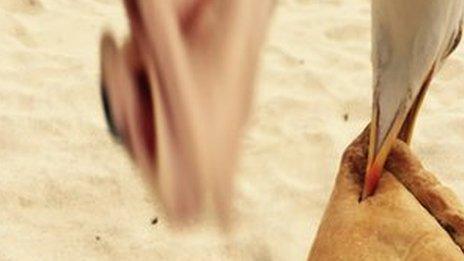
- Published3 July 2015
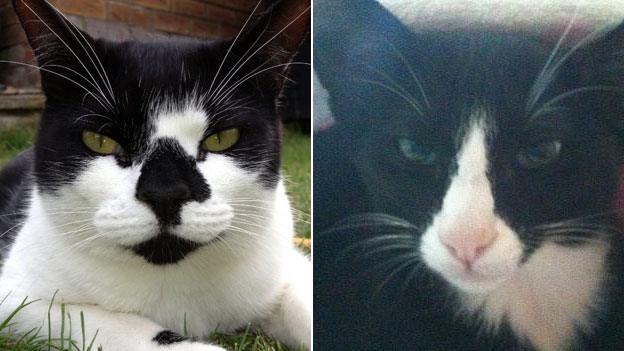
- Published18 June 2015
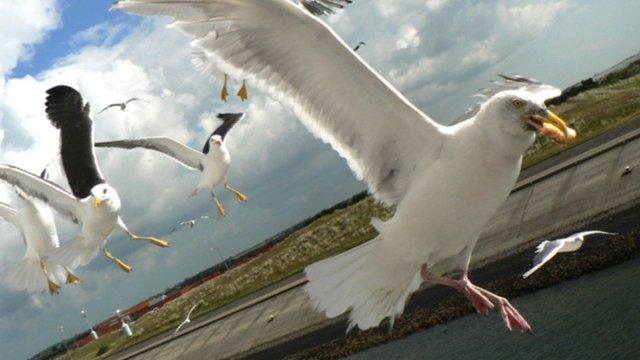
- Published18 June 2015
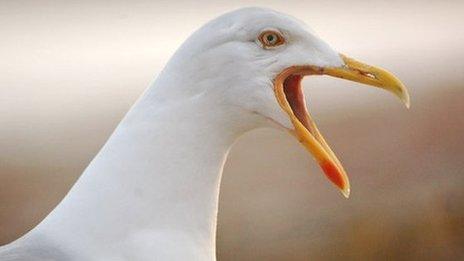
- Published4 April 2014
